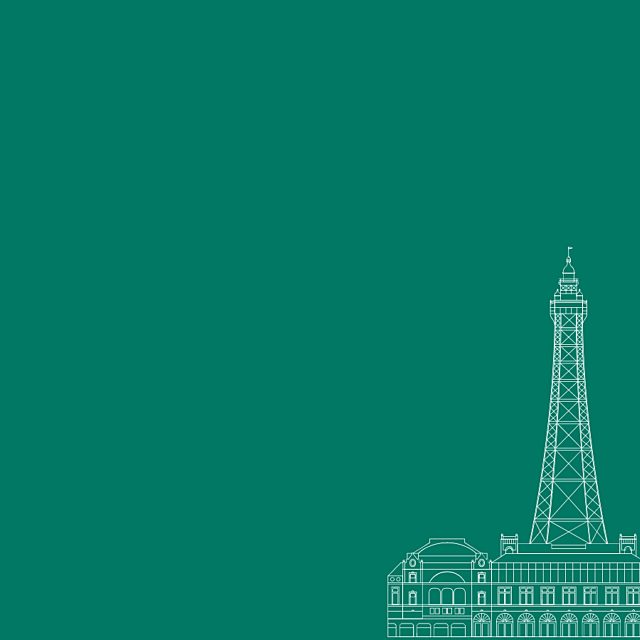By Barry Band

The perfect Christmas Day! Roast turkey with all the trimmings and Christmas pud, followed by a nice snooze.
Then we tidy ourselves for the walk down town for the evening show at the Grand.
What's that? The theatre is closed on Christmas Day?
Ah, but this is 1917 and the town is alive with merriment as residents and visitors make the most of the festivities.
Radio hasn't been invented, we're fed up with our pathetic collection of five discs on the phonograph and, quite frankly, we can't face Uncle Albert's endless recitation of Mr Rudyard Kipling's poems.
That may well have been the attitude of our forebears when the theatres and cinemas had one of their busiest days - Christmas Day.
Wouldn't you have been ready for an evening out if there was no television and no electronic gizmos to amuse you?
So, a hundred years ago, the Grand Theatre's booking of the London revue Zig Zag, starring Leslie Henson, might have been your preference over the D. W. Griffiths silent epic 'Intolerance' at the Winter Gardens Pavilion. The movie was three and a half hours long.
The Opera House and the local cinemas were all open and there were traditional Christmas Tree festivals in the Winter Gardens and the Tower.
Let's have a trip through the decades to see how Blackpool entertained the masses on Christmas Day in "the old days."
In 1920 the Opera House had afternoon and evening performances of its festive season booking of Edward Sheldon's 'Romance' - "the most beautiful love story ever written" - starring Frances Dillon.
At the Palace Theatre the great music hall singer Florrie Forde was in her own production of the pantomime Robinson Crusoe but the Grand was closed for the winter. Christmas festivities were in full swing at the Tower and the Winter Gardens.
Jumping ahead to 1930, Florrie Forde was again at the Palace, in her tour of the pantomime Red Riding Hood. Her cast included Flanagan and Allen.
At the Opera House the musical comedy Mr Cinders also had a Christmas Day performance while across the hall at the Pavilion Jeanette McDonald starred in the Hollywood musical The Vagabond King.
Radio advanced as an entertainment medium in the 1930s but it had little effect on the public's habit of going out on Christmas Day.
In 1940 there was a full programme at the theatres and cinemas as Blackpool met the challenge of entertaining the thousands of servicemen and civil servants stationed here.
The Grand Theatre even had a UK stage premiere to write home about. It was an American play called No Time for Comedy, by S. N. Behrman, with a star cast headed by Rex Harrison and Diana Wynyard.
Lancashire favourite George Formby, who lived at Little Singleton, was at the Opera House in a season of the pantomime Dick Whittington, which had Christmas Day performances at 2.15 and 6.45.
There was a war on and all evening shows had to finish at 9.30pm as the coast "blacked out" for the night.
Feldman's Theatre also had a pantomime, 'Jack and the Beanstalk,' while the Palace had Christmas Day performances of the weekly variety bill starring Max Wall and Maurice Winnick and his Orchestra.
After World War 2, television made a slow start. The single BBC channel was on air only a few hours a day - but most people who invested in the now-iconic Bush TV with the nine-inch screen, suffered poor reception.
By 1950 there were only half a million TV sets in Britain. Christmas Day stage shows were as popular as ever.
It was on a Monday that year and Leslie Henson (30 years after his first Christmas here) opened at the Grand in a two-week run of the whimsical American comedy Harvey, playing the role of Elwood P. Dowd, the guy whose best pal was a six-feet tall rabbit!
The Opera House had an evening performance of the pantomime Sleeping Beauty, starring Scots comedian Dave Willis, Feldman's Theatre had a rival panto with Aladdin, and comedian Jimmy James and Company opened a week at the Palace Varieties.
Blackpool's cinemas, except the Odeon and the Princess, were open.
The pattern of the public's Christmas Day entertainment began to change in the late 1950s. ITV arrived in the north west in 1956 and by 1960 there were TV sets in 10 million UK homes.
The Tower Company moved its big annual pantomime from the Opera House to the smaller Winter Gardens Pavilion, with no Christmas Day performance.
The Palace closed all winter because of the impact of television and the Queens Theatre switched to winter bingo.
And, gradually, more cinema operators found it wasn't viable to open.
On Christmas Day, 1960, most people were content to pick and choose as BBC and ITV presented a menu of star-studded music and comedy specials, Western series, old movies, circuses and pantomimes.
It was all in black and white, but it was there on the box in the corner of the warm and comfy living room.
With supper on a tray!


